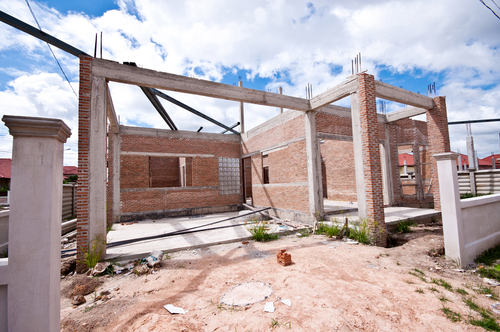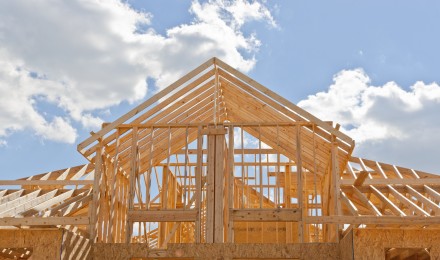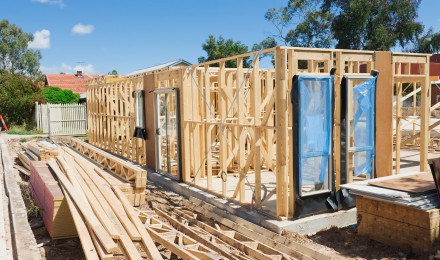The US Census Bureau has released their report for housing starts during the month of July. The result is that starts (which are defined as groundbreaking to dig the foundation) for privately owned housing units dropped 1.1% from the adjusted June numbers. Single family housing starts dropped as well falling 6.5% off the June numbers. While starts were down, building permits were up in July. Privately owned units and single family units rose 6.8% and 4.5% respectively.
Just like with all reports it is important not to get too caught up on the short term numbers. While one month a large drop may seem drastic we need to look at the year over year numbers in order to get a true feel for the direction of the economy. For instance, while privately owned housing starts dropped 1.1% in from June to July 2012, the starts are up 21.5% over the July 2011 numbers. In the long run, a small drop of 1.1% is insignificant compared to the substantial gains made from last year.
July saw privately owned starts at 754,000. While this is still far below the numbers we saw in 2006 when the housing market was booming, it is up quite a bit from the low that was seen in 2008. The housing market dropped rapidly from approximately 1.75 million in 2006, to a low of under 500,000 in 2008. Since the low, the starts have been climbing steadily, but like the rest of the economy they are taking a long time to gain momentum. When we look at the long term trends, we can see that the recovery is taking place, nearly all sectors are off their lows. Unfortunately the contraction happened quickly and the expansion is happening slowly causing many people to remain worried.
The housing market is a key factor in the economy. It represents how people feel about their job, their earning potential, and the future of their ability to spend. When a person is comfortable with his or her income, he or she will be willing to make the commitment to build a new house. This in turn spurs many other sectors, provides jobs in the trades industries, and motivates sales in the retail sector. Housing starts is a preliminary way to measure the direction of the economy. Investors and economists will look at the starts to get an accurate feel of whether or not the economy is expanding or contracting. The US Census Bureau compiles and delivers their report around the middle of each month reporting the numbers for the previous month.
The US Census Bureau has released their report for housing starts during the month of July. The result is that starts (which are defined as groundbreaking to dig the foundation) for privately owned housing units dropped 1.1% from the adjusted June numbers. Single family housing starts dropped as well falling 6.5% off the June numbers. While starts were down, building permits were up in July. Privately owned units and single family units rose 6.8% and 4.5% respectively.
Just like with all reports it is important not to get too caught up on the short term numbers. While one month a large drop may seem drastic we need to look at the year over year numbers in order to get a true feel for the direction of the economy. For instance, while privately owned housing starts dropped 1.1% in from June to July 2012, the starts are up 21.5% over the July 2011 numbers. In the long run, a small drop of 1.1% is insignificant compared to the substantial gains made from last year.
July saw privately owned starts at 754,000. While this is still far below the numbers we saw in 2006 when the housing market was booming, it is up quite a bit from the low that was seen in 2008. The housing market dropped rapidly from approximately 1.75 million in 2006, to a low of under 500,000 in 2008. Since the low, the starts have been climbing steadily, but like the rest of the economy they are taking a long time to gain momentum. When we look at the long term trends, we can see that the recovery is taking place, nearly all sectors are off their lows. Unfortunately the contraction happened quickly and the expansion is happening slowly causing many people to remain worried.
The housing market is a key factor in the economy. It represents how people feel about their job, their earning potential, and the future of their ability to spend. When a person is comfortable with his or her income, he or she will be willing to make the commitment to build a new house. This in turn spurs many other sectors, provides jobs in the trades industries, and motivates sales in the retail sector. Housing starts is a preliminary way to measure the direction of the economy. Investors and economists will look at the starts to get an accurate feel of whether or not the economy is expanding or contracting. The US Census Bureau compiles and delivers their report around the middle of each month reporting the numbers for the previous month.






